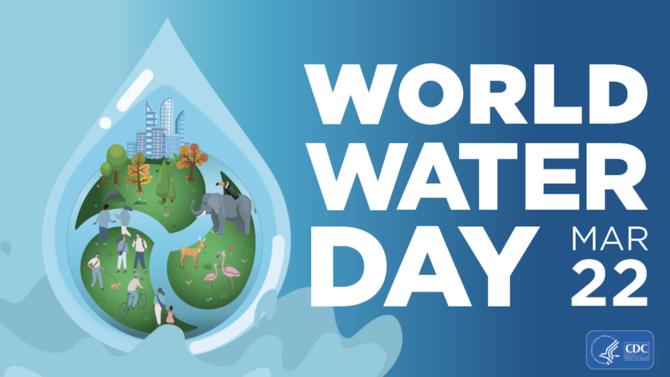
As the coronavirus disease (COVID-19) pandemic continues to rage around much of the world, people are having to learn to cope with constant uncertainty and change. Fortunately, the human brain has the ability to conduct high-level reasoning that weighs risks and assesses a changing environment. Unfortunately, however, the vast majority of human thinking is more binary and struggles to adapt to change. This presents a major challenge to managing the pandemic.
Many psychologists talk about “System 1” and “System 2” in human cognition. System 1 governs most of human thinking; it acts quickly, often automatically and unconsciously. System 1 often thinks in binary terms — choose this or that. System 2 is responsible for higher-level reasoning. A similar but slightly different way to consider the difference in types of thinking is social psychologist Jonathan Haidt’s approach: Intuition and reasoning. Haidt argues that intuition governs most of human behavior; reasoning can check intuition but more often is used to justify the choices that a person intuitively prefers.
System 1 has huge advantages to human survival and functionality. When adults cross the street, we have learned to ignore the sounds of the birds, trees and other distractions, and instead focus on oncoming cars. Binary thinking helps us make quick decisions, such as which way to turn while driving. There is nothing wrong with System 1 or with intuitive thinking — as long as we allow higher-level reasoning to check our primary systems, especially when we are facing a complex situation.
The pandemic poses a major challenge to human cognition. It is relatively easy for people to understand a black and white choice between total quarantine and total openness. It is much more difficult for people to cope with the need to constantly make nuanced decisions, especially within a constantly changing information environment. It is difficult to frequently make decisions about whether to visit family, send children to school, eat in a restaurant, get a haircut, attend a protest, shop in person or online, and so forth. We constantly have to balance the risks of the pandemic with the need to work, educate children, connect with loved ones, and engage in other normal activities. It is even more difficult to constantly assess the risks and benefits of such basic activities when the risks frequently shift, as the virus spreads or recedes and as scientific knowledge about the virus expands.
Indeed, maintaining a nuanced understanding of the daily risks and benefits to normal activities in a pandemic has proven too stressful and difficult for many people. In much of the world, many people have chosen to either maintain an indefinite form of quarantine or to throw caution to the wind. Some people have chosen to socialize only with family, to educate children online or at home, and to order groceries for delivery only. Indeed, some people have health conditions that necessitate these actions and, in locations with high virus levels, it might be required or advisable. For some, it is the least stressful way to avoid constant risk assessment.
At the other end of the spectrum are people who have chosen to ignore all risks. In Europe, the US and Brazil, for example, there have been examples of people crowding beaches with no masks or social distancing, going to bars, and refusing to wear masks. Their desire to be carefree is understandable but is a major impediment to controlling the spread of COVID-19.
In some places, policy debates also reflect exhaustion with the nuance required to find a balance between basic human needs and the need to combat the pandemic: For example, schools should be completely open or completely online, or masks will save us or are useless. In some specific situations, some of these might be the right answer. However, in most cases, a more nuanced approach makes sense.
Nuance is important to effective public health messaging. As a recent New York Times article noted, “in their desire to be authoritative, public health experts have eroded trust by not accurately communicating uncertainty,” referring to both the World Health Organization and national-level experts. When public health experts communicate a clear message that honestly acknowledges uncertainty, it is more effective than communicating a strong message — such as saying that masks are not useful or that the virus does not spread asymptomatically — and then changing that message later. Ensuring trust in public health messaging will be particularly important to an effective vaccine campaign in the future.
Political leaders and public health leaders who want the public to take their advice seriously should embrace nuance. While our brains prefer black and white answers, we also know that such answers are often not trustworthy. Leaders should help provide publics with clear rules where that is necessary (such as wearing masks in public) and with more nuanced guidelines where there is uncertainty or where communities and individuals must make more individual cost-benefit analyses (such as when to reopen schools and return to work).
At the same time, individuals have a responsibility to try to maintain a nuanced approach toward their own behavior, constantly considering the costs and benefits of daily life decisions in a pandemic and their responsibility to their community and family. We must be prepared to change those cost-benefit analyses as the virus’ effects shift and as information about the pandemic evolves. This will be hard, but humans are capable of difficult, high-level reasoning when we choose to put in the work.
• Kerry Boyd Anderson is a writer and political risk consultant with more than 16 years’ experience as a professional analyst of international security issues and Middle East political and business risk. Her previous positions include deputy director for advisory with Oxford Analytica and managing editor of Arms Control Today. Twitter: @KBAresearch.
Disclaimer: Views expressed by writers in this section are their own and do not necessarily reflect Arab News" point-of-view












